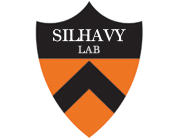Redefining the essential trafficking pathway for outer membrane lipoproteins
Type
The outer membrane (OM) of Gram-negative bacteria is a permeability barrier and an intrinsic antibiotic resistance factor. Lipoproteins are OM components that function in cell wall synthesis, diverse secretion systems, and antibiotic efflux pumps. Moreover, each of the essential OM machines that assemble the barrier requires one or more lipoproteins. This dependence is thought to explain the essentiality of the periplasmic chaperone LolA and its OM receptor LolB that traffic lipoproteins to the OM. However, we show that in strains lacking substrates that are toxic when mislocalized, both LolA and LolB can be completely bypassed by activating an envelope stress response without compromising trafficking of essential lipoproteins. We identify the Cpx stress response as a monitor of lipoprotein trafficking tasked with protecting the cell from mislocalized lipoproteins. Moreover, our findings reveal that an alternate trafficking pathway exists that can, under certain conditions, bypass the functions of LolA and LolB, implying that these proteins do not perform any truly essential mechanistic steps in lipoprotein trafficking. Instead, these proteins' key function is to prevent lethal accumulation of mislocalized lipoproteins.

